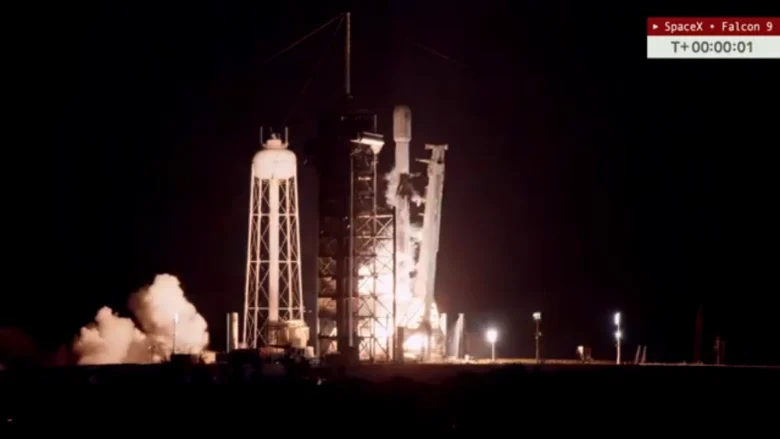Two Indian startups have taken another step into space. Bengaluru-based Pixxel and Hyderabad’s Dhruva Space launched satellites aboard SpaceX’s Falcon 9 rocket from Vandenberg Space Force Base in California on August 27, 2025. The mission, a shared flight carrying multiple international payloads, marks fresh progress for India’s private space sector.
Pixxel sent three Earth-imaging satellites, named Firefly-1, 2, and 3, into a sun-synchronous orbit at 550 kilometers. Each weighs around 50 kilograms and captures data in more than 135 color bands, far beyond the range of human vision. These satellites join three others launched earlier this year, creating a six-satellite network designed to monitor Earth daily at a resolution of five meters.
Dhruva Space, meanwhile, launched LEAP-1, its first full commercial satellite. The spacecraft carries two Australian payloads: an artificial intelligence processor from Akula Tech and a hyperspectral camera from Esper Satellites. The setup allows the satellite to process information in orbit instead of sending all data back to Earth, speeding up alerts on issues such as deforestation, crop damage, or disaster response.
Hyperspectral imaging, a key feature of both companies’ satellites, separates light into hundreds of narrow bands. This method can identify stressed crops, track oil spills, detect minerals, and monitor pollution with high accuracy. Pixxel’s satellites can scan 40 kilometers of terrain in a single pass, enabling daily observations of any point on Earth.
The Falcon 9 rocket carried out the launch as part of a rideshare program that lets smaller firms share costs. The booster, flying for the 27th time, landed successfully after liftoff. Indian firms opted for SpaceX’s service because of its flexible schedule and precise orbit placement, even though Indian launch vehicles remain an option.
Both startups are expanding rapidly. Pixxel has raised $95 million to build the first private Earth observation network from India and plans to add more satellites, nicknamed Honeybees, with real-time data processing. Dhruva Space, which has raised $15 million, is preparing further missions to showcase its technology to customers around the world.
India’s private space industry has grown quickly since the government opened the sector to non-state players. With Pixxel and Dhruva Space now putting commercial satellites into orbit, Indian companies are positioning themselves as global competitors in Earth observation and satellite services.

